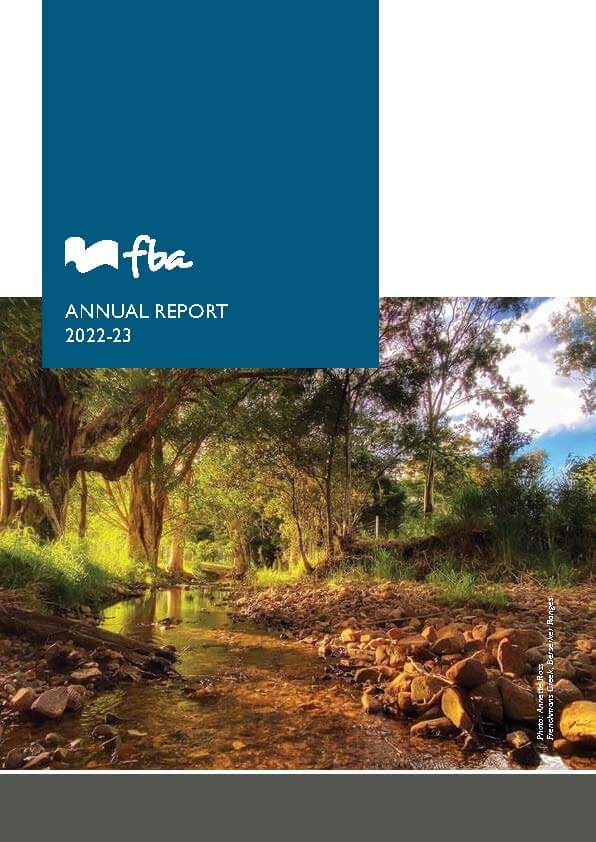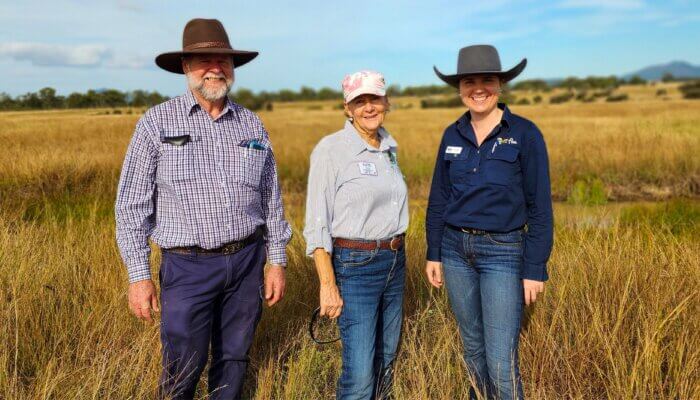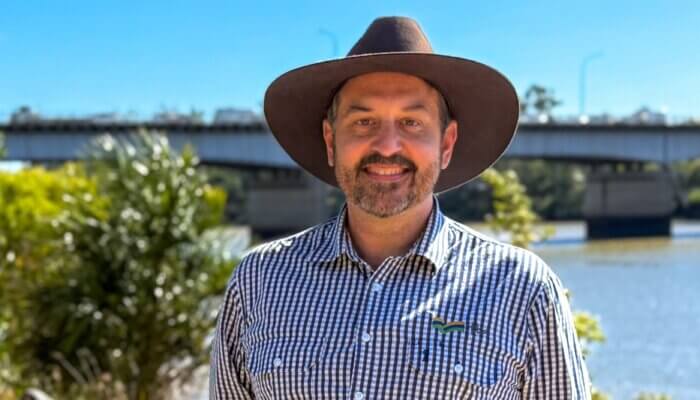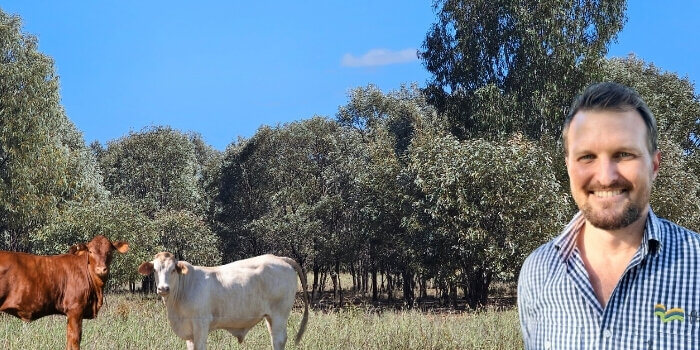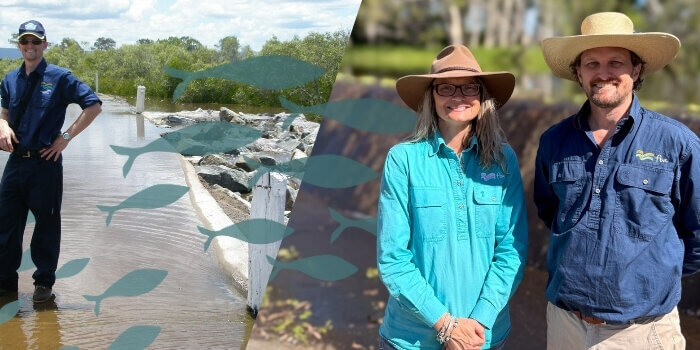Resources library
Resources
FBA Flyer
FBA Flyer
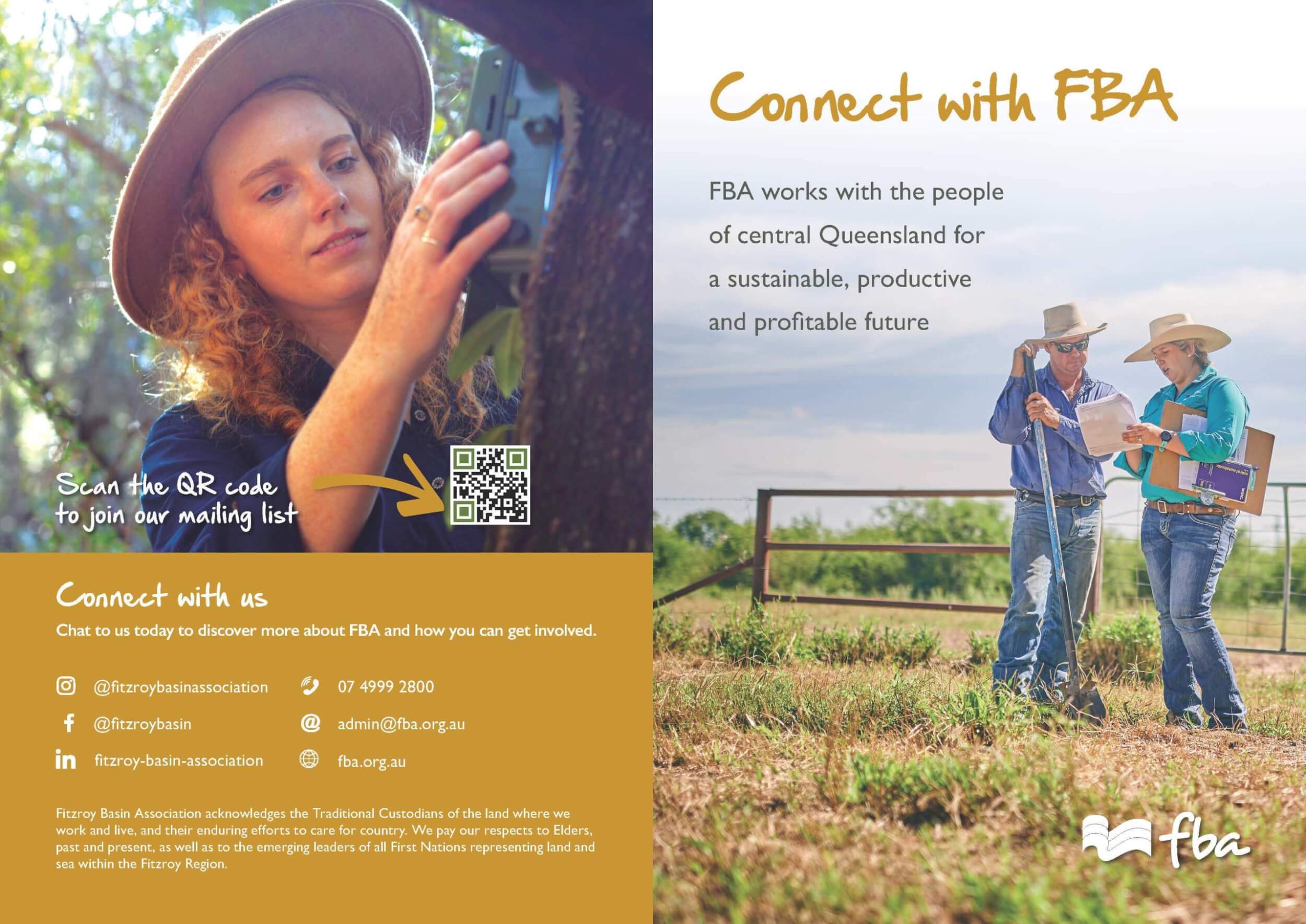
The FBA services flyer is a basic introduction to promote brand awareness for FBA. The flyer briefly outlines who we are, what we do and where our region is.
02/07/2024
Fitzroy Water Quality Program – E-magazine
Fitzroy Water Quality Program – E-magazine
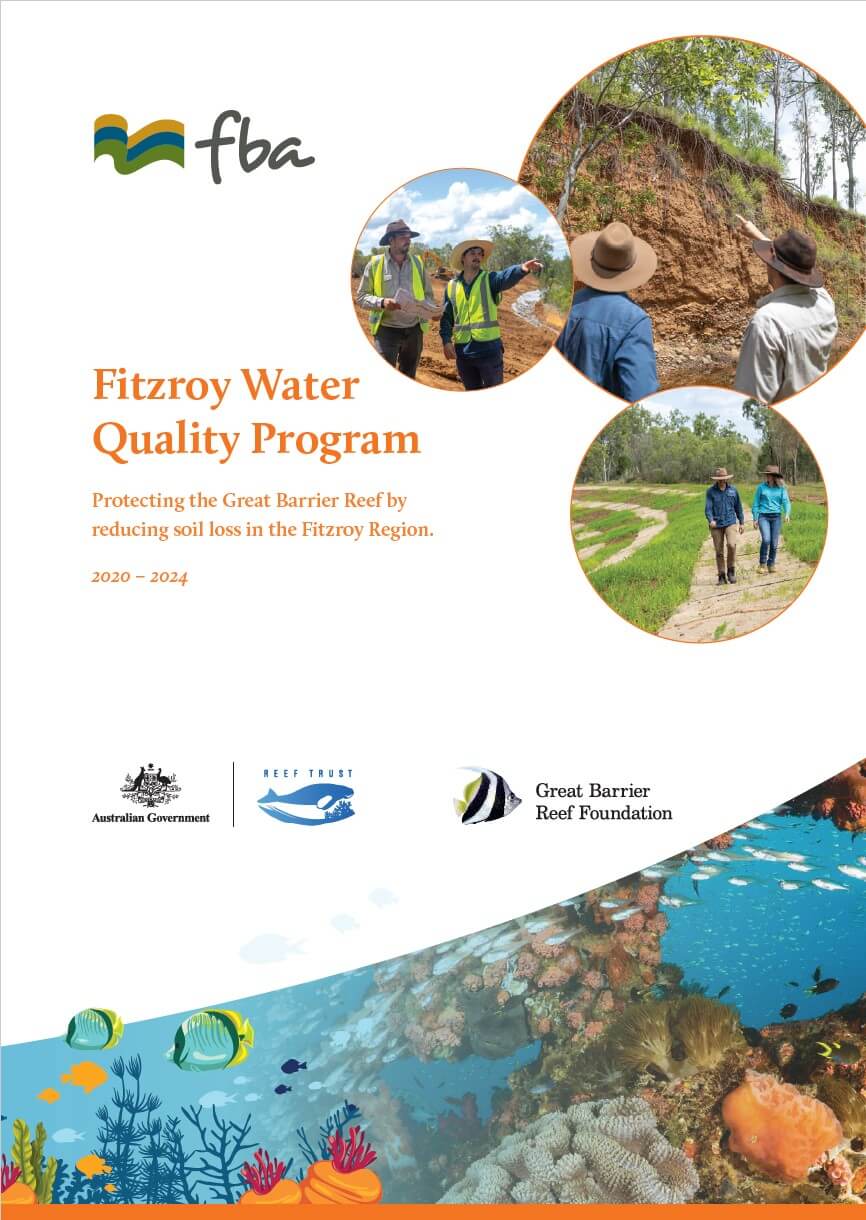
Read about the on-ground projects delivered as part of the Fitzroy Water Quality Program.
26/06/2024
Native Trees in Agricultural Systems – Case Study
Native Trees in Agricultural Systems - Case Study

For central Queensland grazier Anna Radel, establishing more tree coverage in the paddock was about improving groundcover, with the additional hope of bringing back a once well-known koala population.
12/06/2024
GRASS – Case Study
GRASS - Case Study
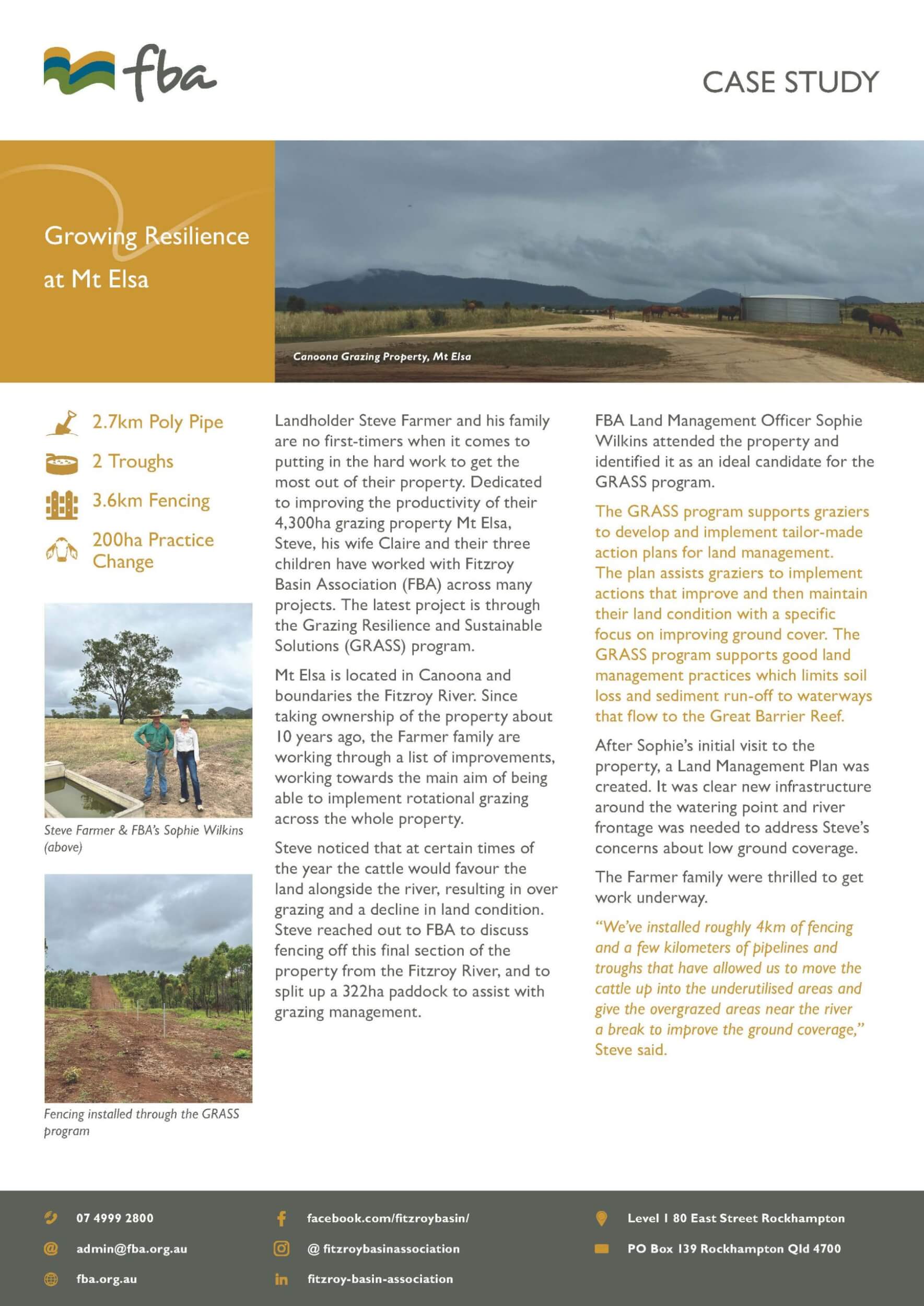
Landholder Steve Farmer and his family are no first-timers when it comes to putting in the hard work to get the most out of their property. Dedicated to improving the productivity of their 4,300ha grazing property Mt Elsa, Steve, his wife Claire and their three children have worked with Fitzroy Basin Association (FBA) across many projects. The latest project is through the Grazing Resilience and Sustainable Solutions (GRASS) program.
08/04/2024
Benefits of Native Trees in CQ Grazing Systems
Benefits of Native Trees in CQ Grazing Systems
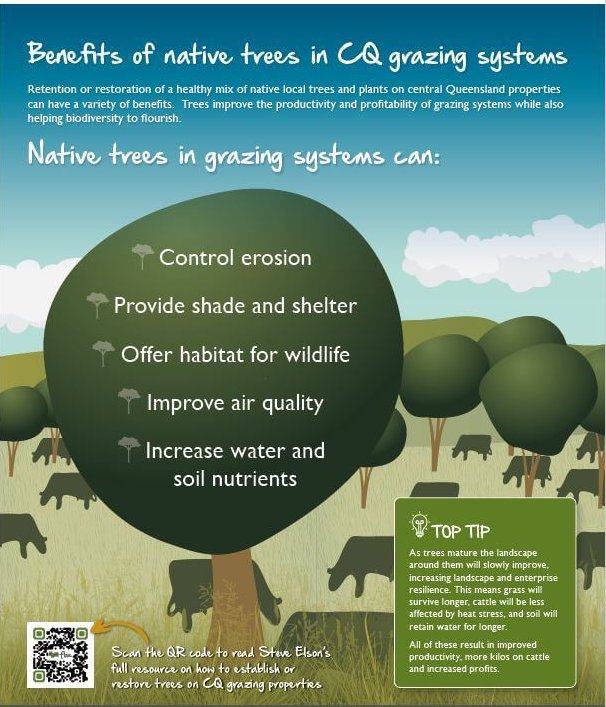
Retention or restoration of a healthy mix of native local trees and plants on central Queensland properties can have a variety of benefits. Trees improve the productivity and profitability of grazing systems while also helping biodiversity to flourish. This guide is a condensed version of Steve Elson’s full resource on how to establish or restore trees on CQ grazing properties.
15/02/2024
GRASS Case Study
GRASS Case Study
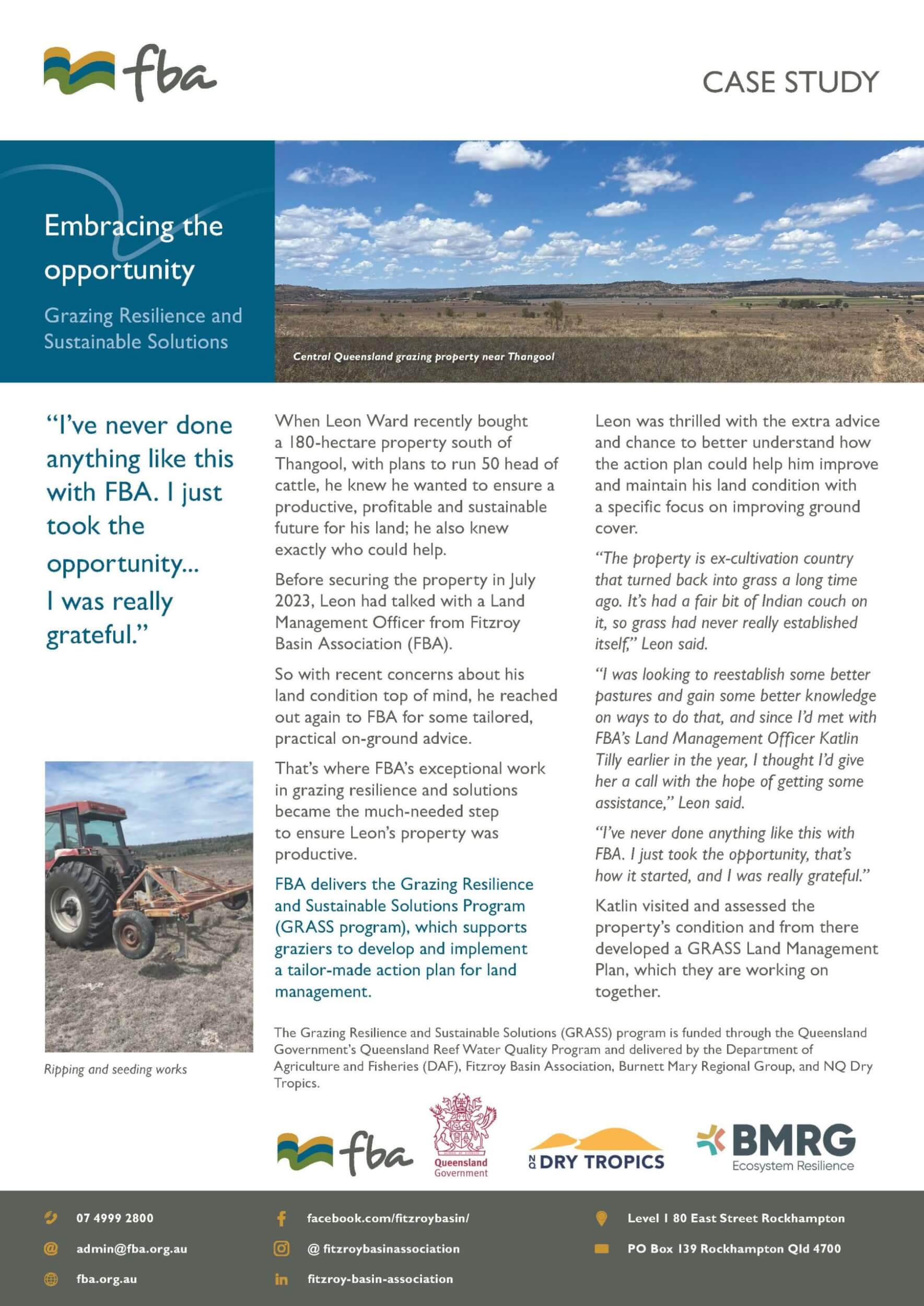
When Leon Ward recently bought a central Queensland property, with plans to run cattle, he knew he wanted to ensure a productive, profitable and sustainable future for his land, he also knew exactly who could help. Learn how funding through the GRASS program is helping Leon reach his goals.
18/12/2023
A Verterra Project Snapshot – Grazing Land Management Project
A Verterra Project Snapshot - Grazing Land Management Project
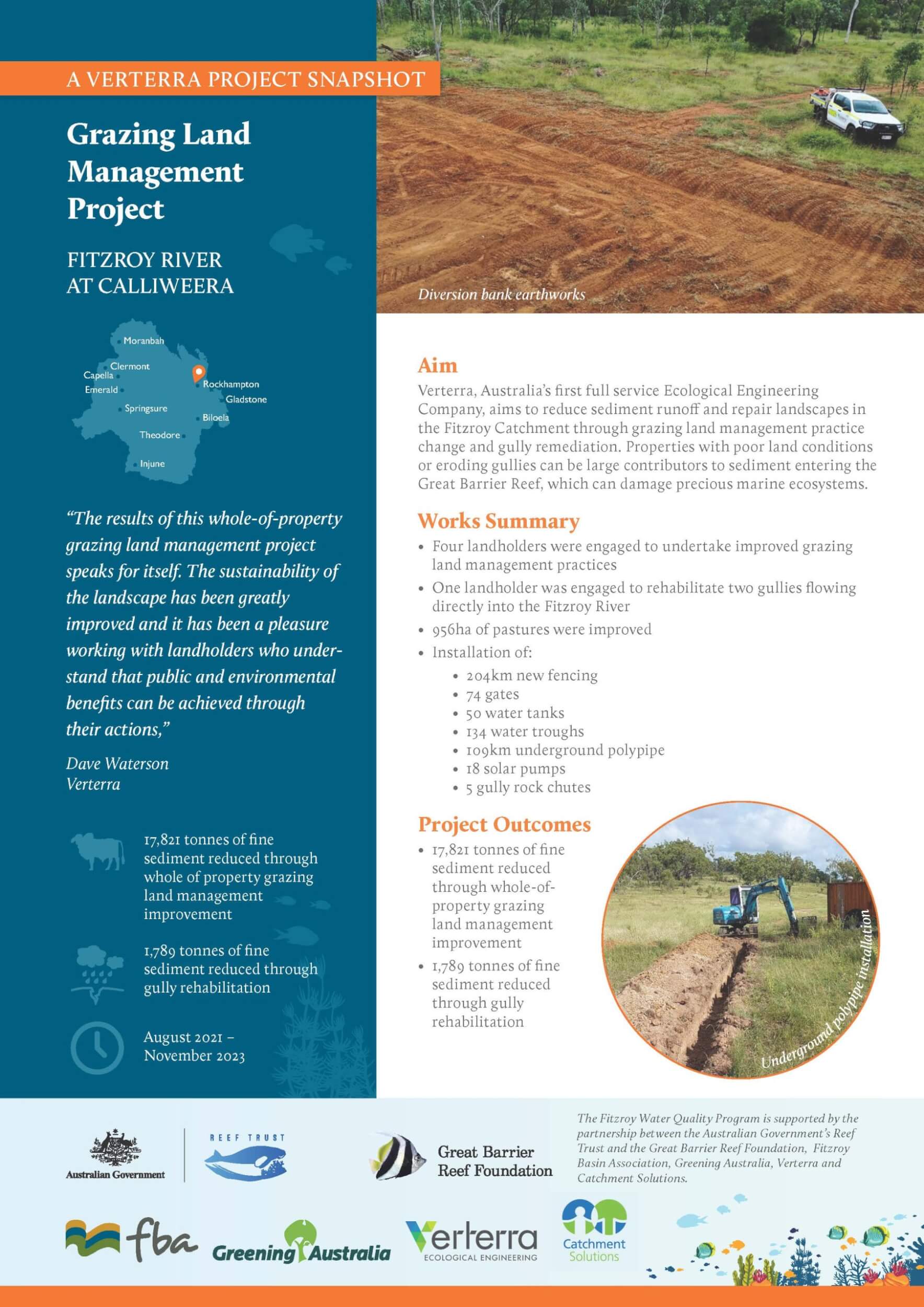
Verterra Ecological Engineering have made some incredible progress on their project within the The Great Barrier Reef Foundations (GBRF) Fitzroy Water Quality Program. The program is a $19.6 million investment under the partnership between the Australian Government’s Reef Trust and the Great Barrier Reef Foundation (GBRF). It is building the resilience of the Great Barrier Reef.
22/11/2023
The Grazing Resilience and Sustainable Solutions (GRASS) Program
Do you have poor or degraded ground cover? FBA can help
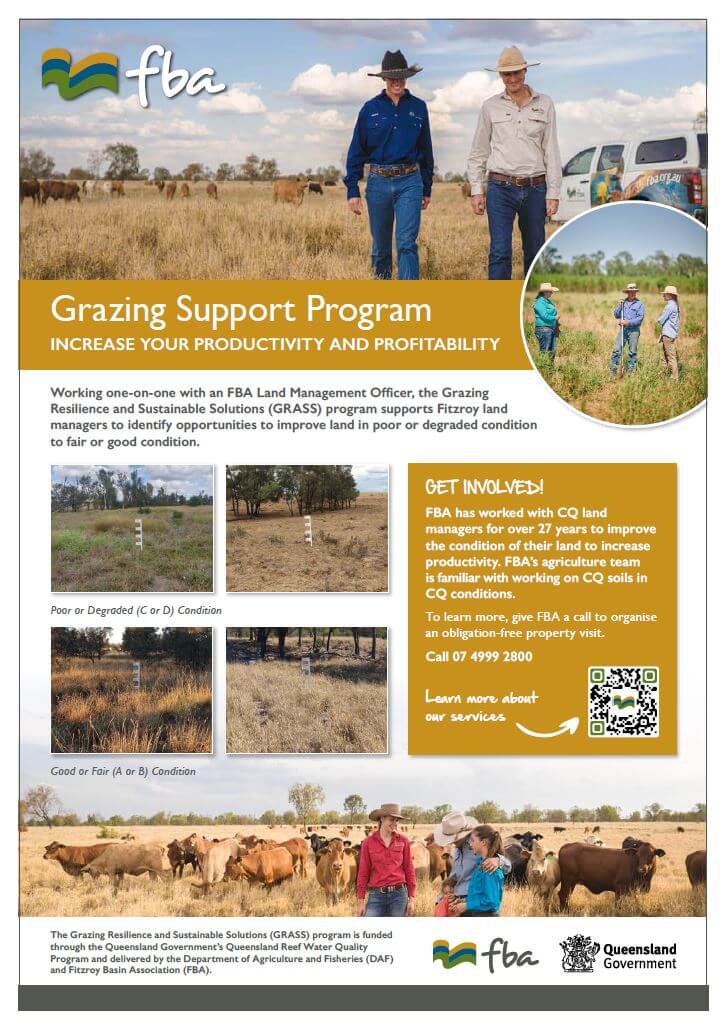
Working one-on-one with an FBA Land Management Officer, the Grazing Resilience and Sustainable Solutions (GRASS) program supports Fitzroy land managers to identify opportunities to improve land in poor or degraded condition to fair or good condition. Contact us to learn how you can get involved.
07/08/2023





